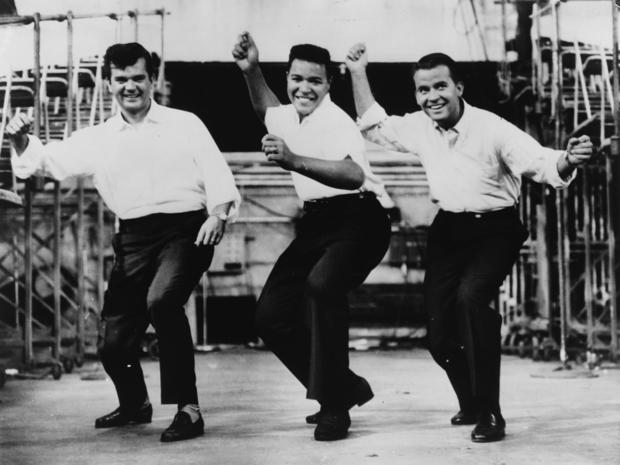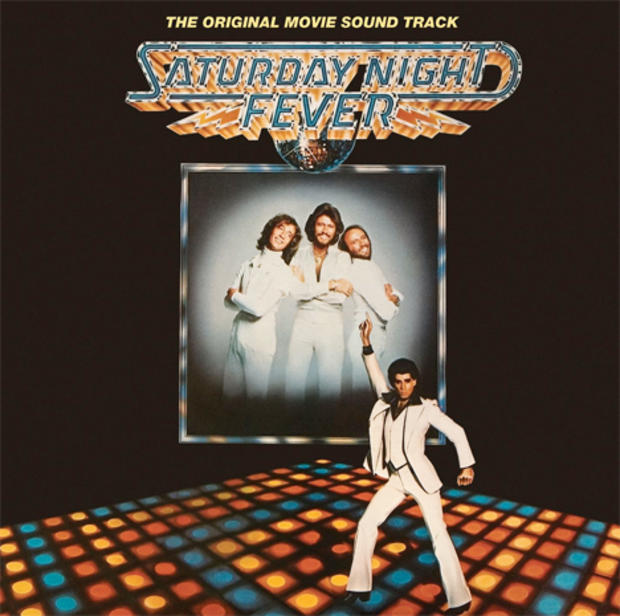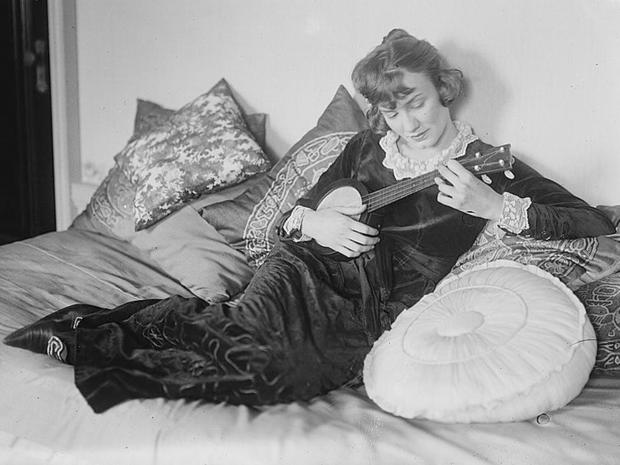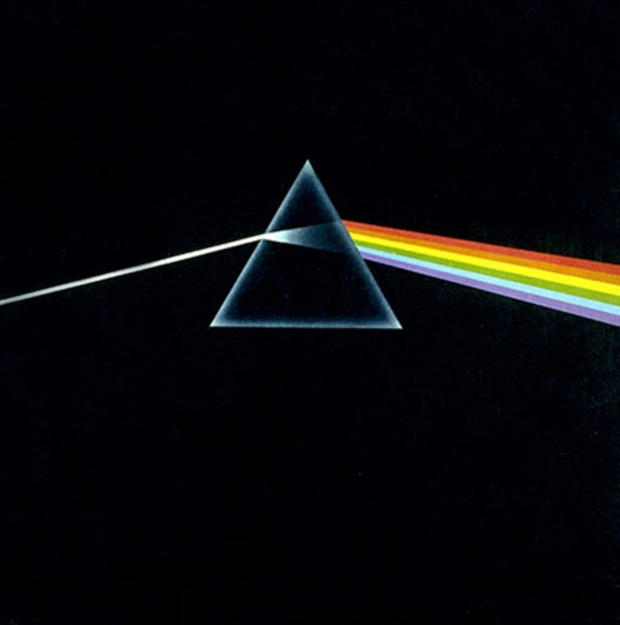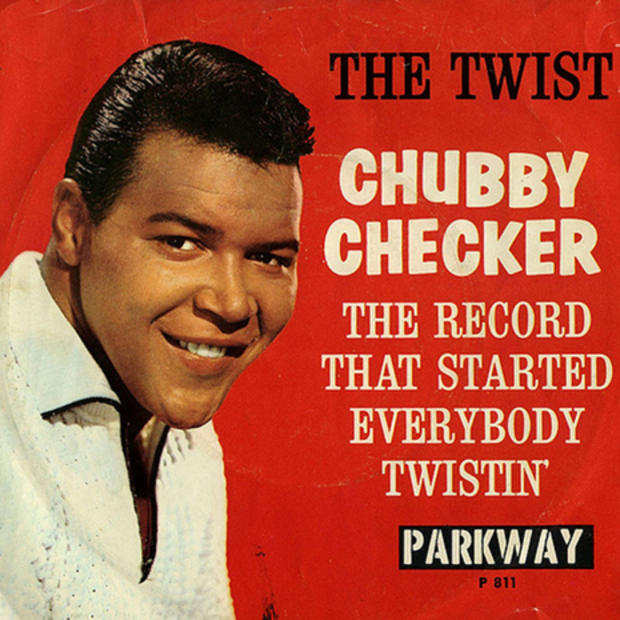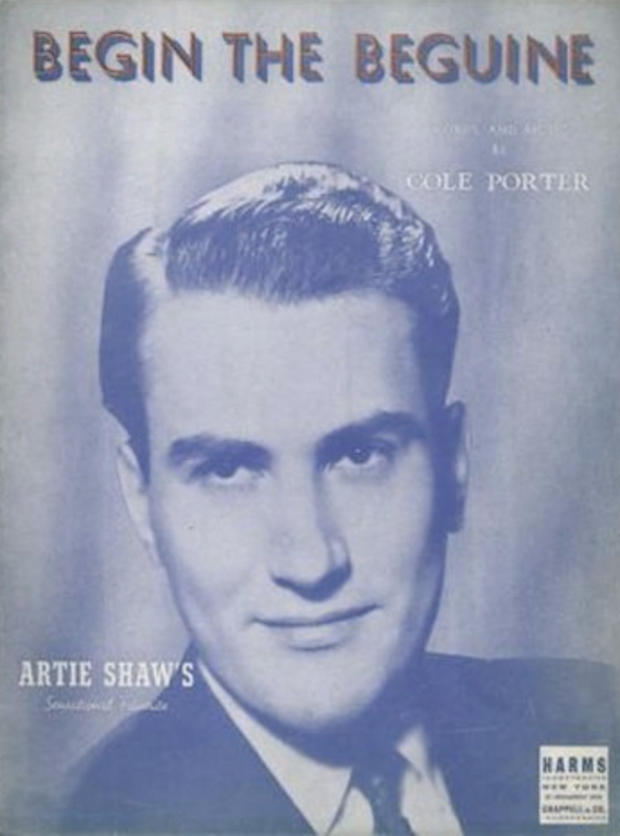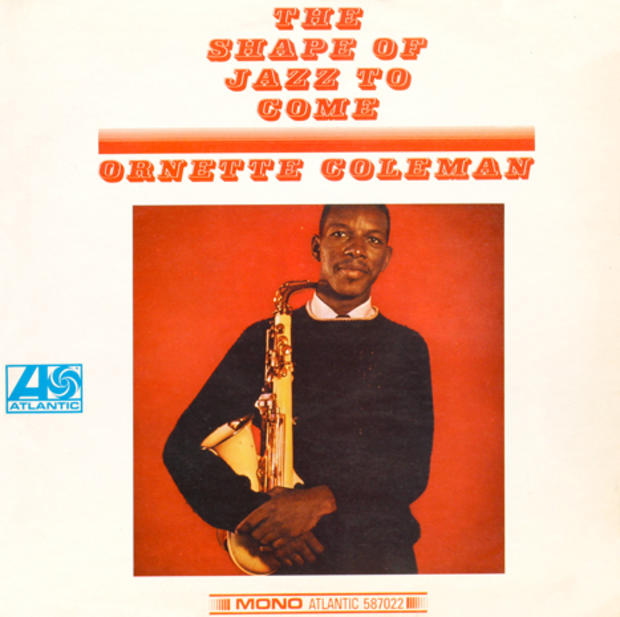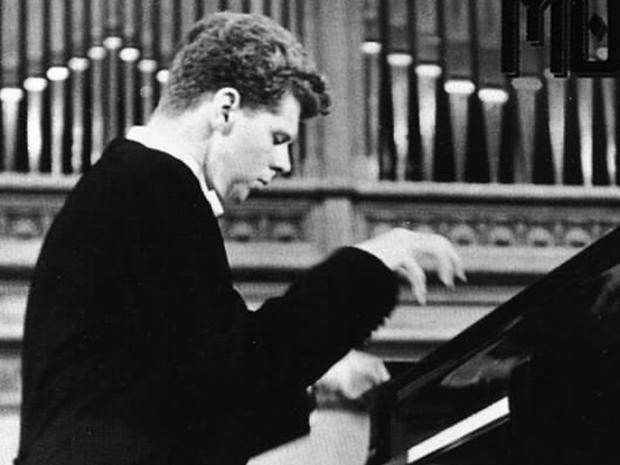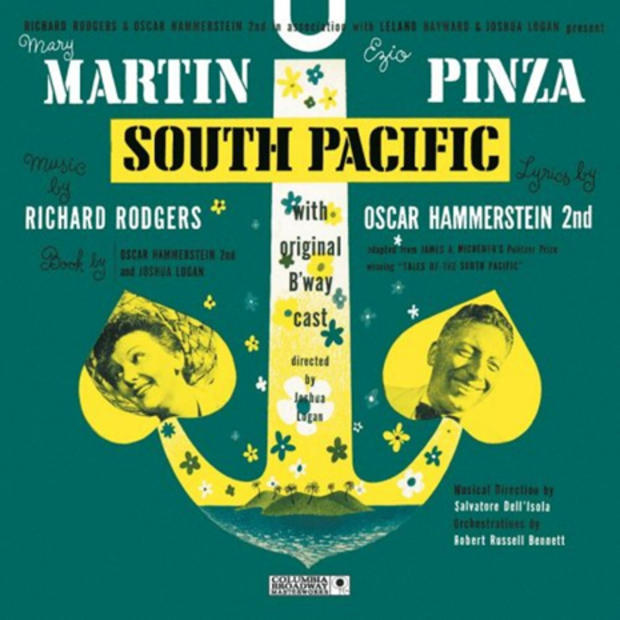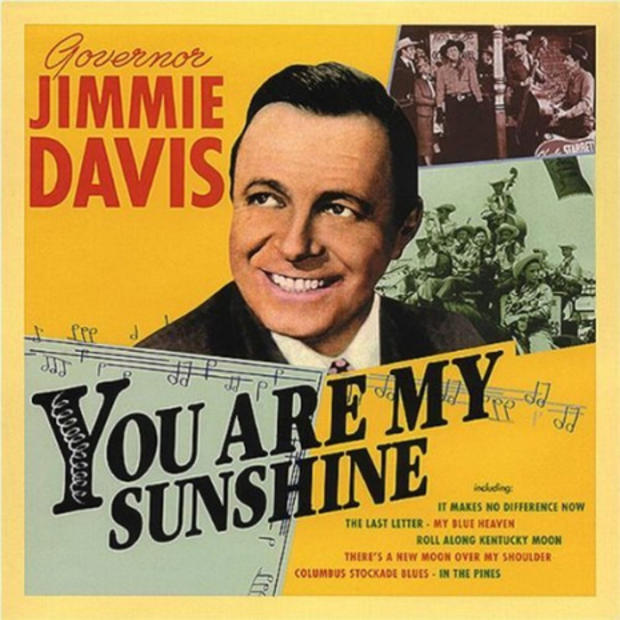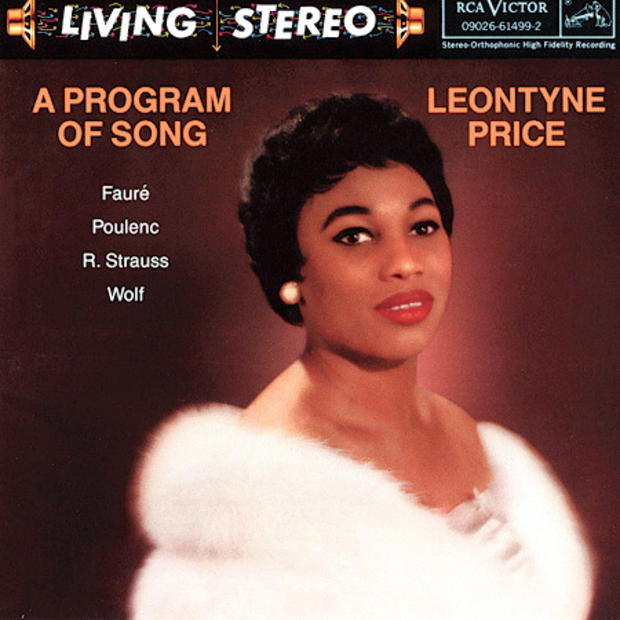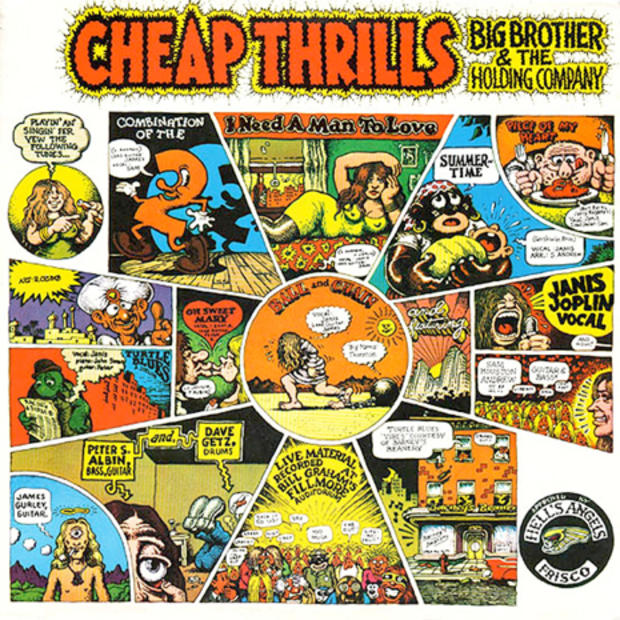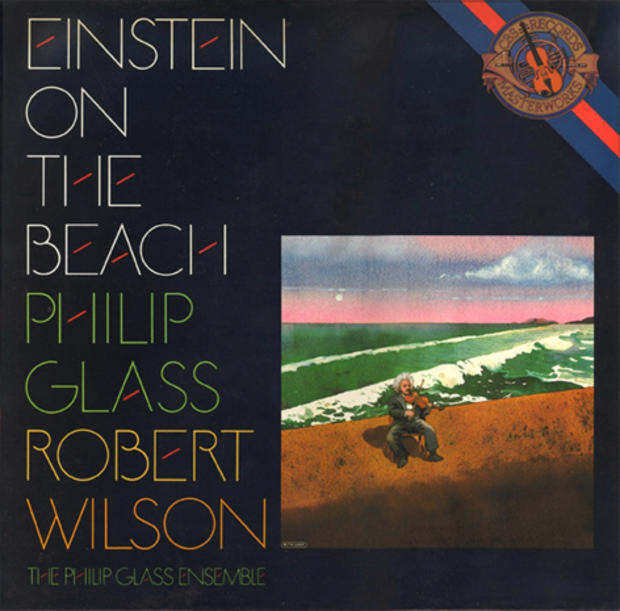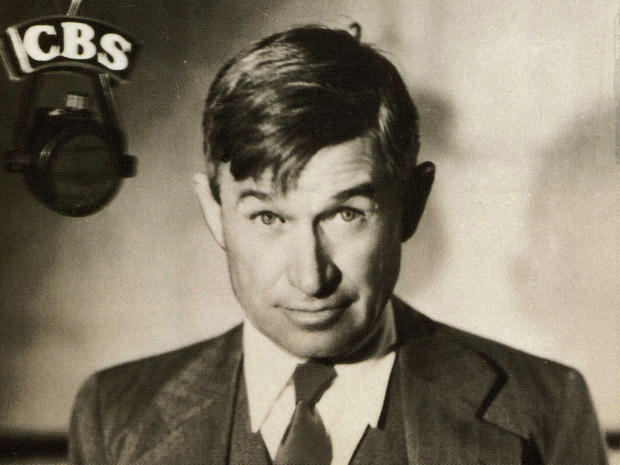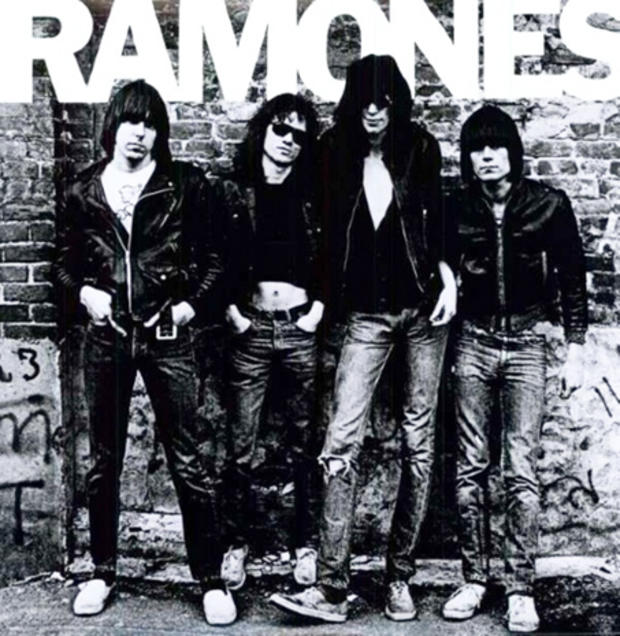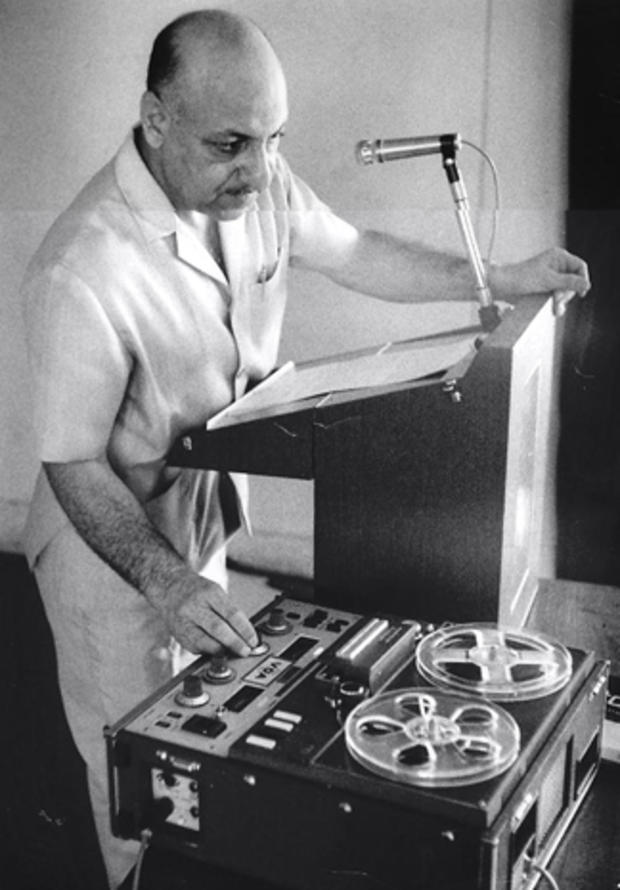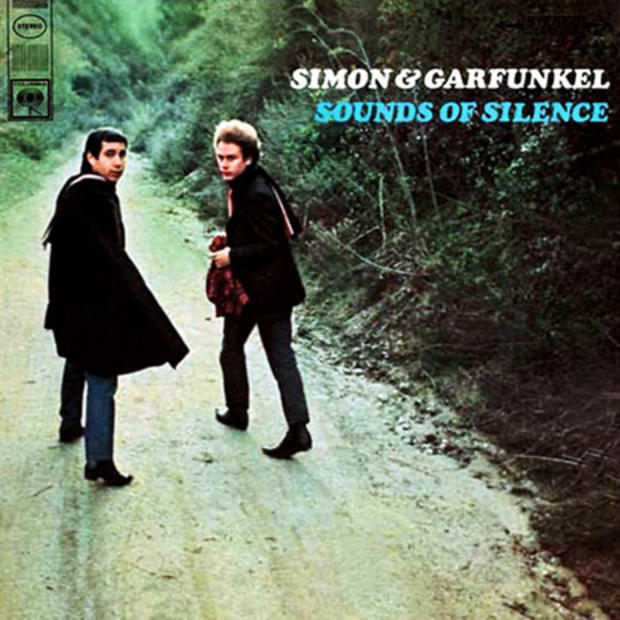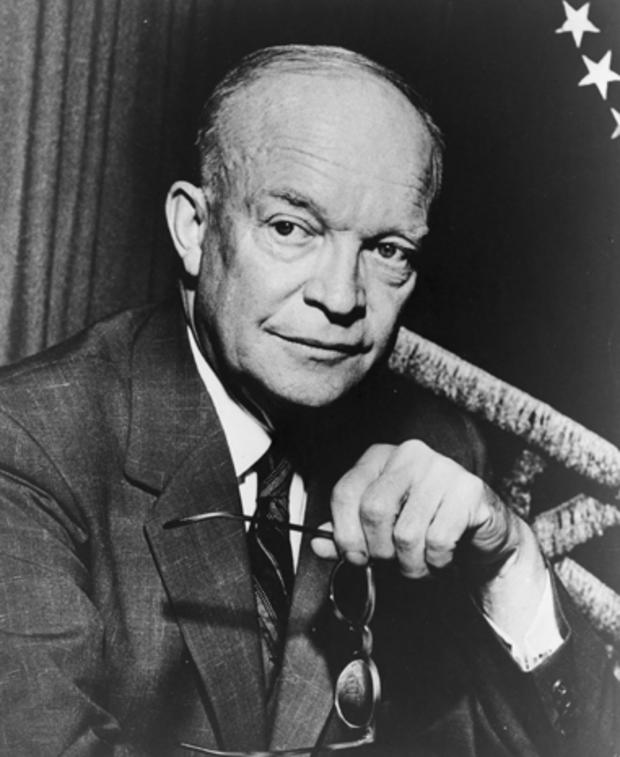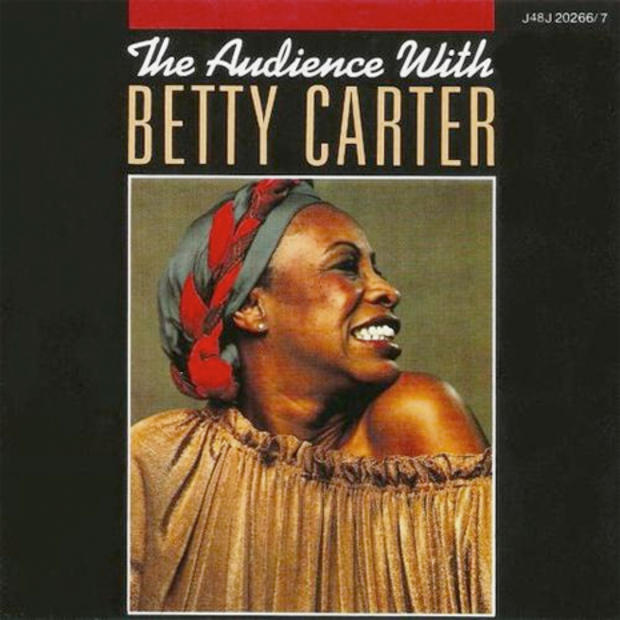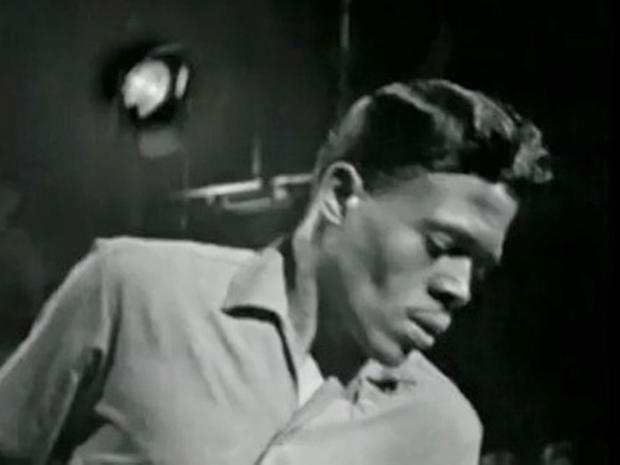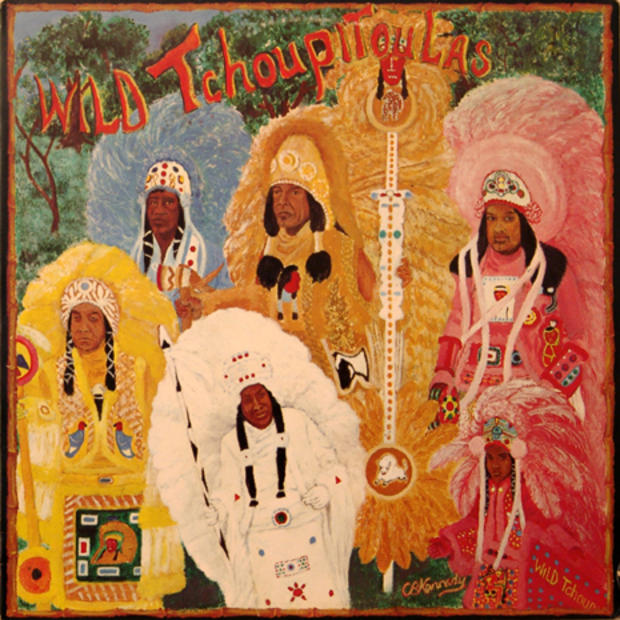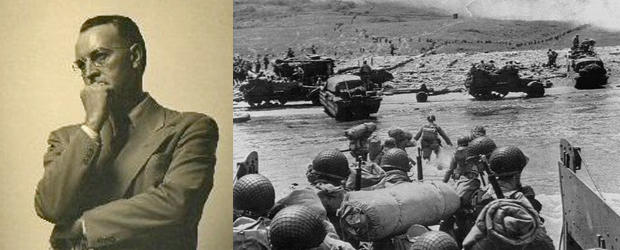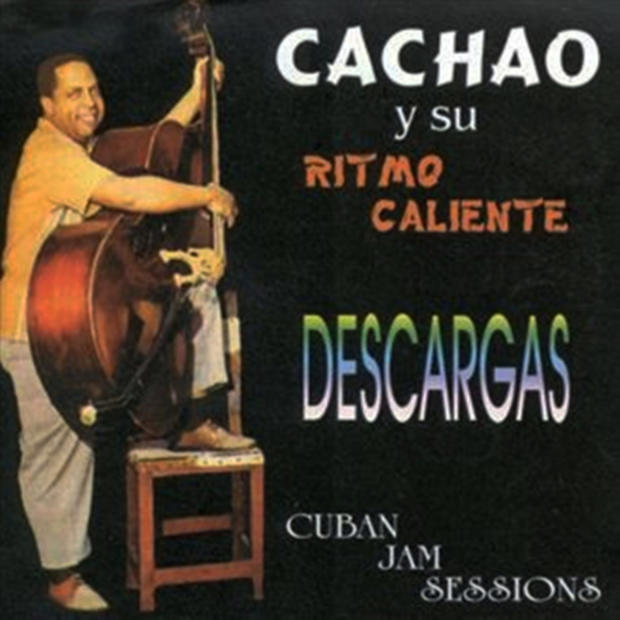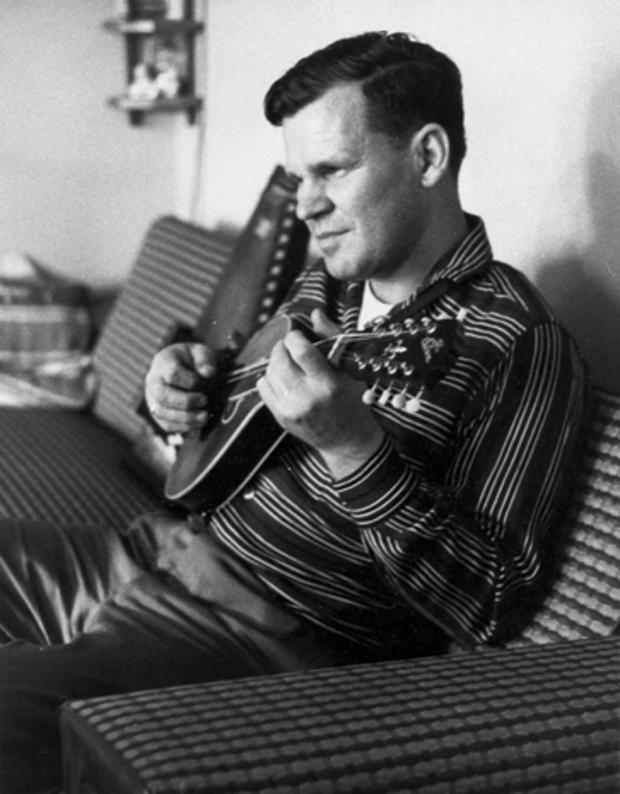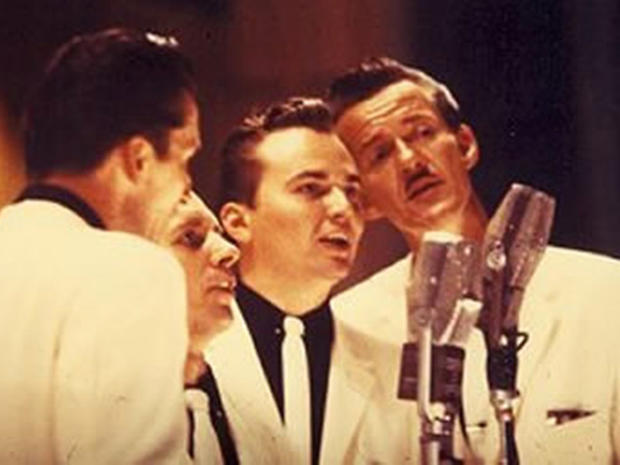Additions to National Recording Registry
On March 21, 2013, the Library of Congress named 25 audio recordings to be preserved as part of its National Recording Registry, an audio collection of America's cultural, artistic and historic treasures. The Registry contains commercial recordings of every music genre, as well as radio broadcasts, documentary and news recordings.
Among the artists whose work will be preserved for future generations are Chubby Checker (pictured left, with Conway Twitty and Dick Clark), Janis Joplin, Van Cliburn, Artie Shaw, Simon & Garfunkel, The Ramones, Philip Glass, and The Bee Gees.
By clicking through this gallery you may also listen to audio samples of the latest additions.
By CBSNews.com senior producer David Morgan
"Saturday Night Fever"
The Bees Gees were the headline act of this soundtrack for the 1977 film starring John Travolta as a young Brooklyn man spending his nights at a disco to escape his dead-end life. The popularity of the Bee Gees' songs -- including "Stayin' Alive," "Night Fever," "How Deep Is Your Love," and "More Than a Woman" -- kept the album on Billboard's charts for more than two years.
The soundtrack (which won the Grammy Award for Best Album) also features songs by Tavares, Yvonne Elliman, K.C. & The Sunshine Band, and Kool & The Gang, and instrumental music by David Shire.
Play Excerpt: "Stayin' Alive"
Marion Harris
Marion Harris (1896-1944) was a popular cabaret singer of jazz and blues songs. In one of the earliest recordings of the Turner Layton-Henry Creamer tune, "After You've Gone," Harris brought a laid-back, evocative sound that heavily influenced other singers of jazz standards. "After You've Gone" was later recorded by, among others, Louis Armstrong, Ella Fitzgerald, Bessie Smith, Sophie Tucker, Lionel Hampton and Frank Sinatra.
Play Excerpt: "After You've Gone"
"The Dark Side of the Moon"
After trying out the songs for their 1973 album while on tour, the progressive rock band Pink Floyd used the technology of the recording studio -- 16-track recorders, tape loops, synthesizers -- to produce this sonically celebrated album, which features subject matter decidedly darker than what was found on the band's earlier, psychedelic rock albums. Recorded at London's Abbey Road Studios by engineer Alan Parsons, "Dark Side of the Moon" is one of the best-selling albums ever, with more than 50 million copies sold. Its memorable songs include "Money," "Time," and "Us and Them."
Play Excerpt: "Money"
"The Twist"
A blues song originally recorded in 1959 by Hank Ballard and the Midnighters, "The Twist" was later covered by Philadelphia singer Chubby Checker. The airplay and exposure on "American Bandstand" took Checker's recording to the top of the charts, introducing a new dance craze with it.
The recording was then re-released almost two years later, when it AGAIN hit Number One.
Chubby Checker had an explanation for the success of the dance associated with the song: "You didn't have to be a great dancer to do the Twist. All you needed to do was a few steps, a little imagination, and you were home."
Play Excerpt: "The Twist"
"Begin the Beguine"
"Begin the Beguine," Artie Shaw (1938)
Written by Cole Porter for the less-than-well-received musical "Jubilee," "Begin the Beguine" was covered by bandleader Artie Shaw, who sped up the song's original, slow tempo. Though relegated to the "B" side of "Indian Love Call," the tune became a hit -- and, like Mick Jagger and "Satisfaction," a tune Shaw was destined to perform repeatedly throughout his career.
Play Excerpt:"Begin the Beguine"
"The Shape of Jazz to Come"
This experimental jazz album by Ornette Coleman -- this third, and his first for Atlantic Records -- pushes improvisational modes beyond bebop and toward the avant-garde, or "free jazz." Playing alto saxophone with Don Cherry (cornet), Charlie Haden (bass) and Billy Higgins (drums), Coleman abandoned chord structures to produce timeless tracks such as the classic "Lonely Woman," "Eventually," "Congeniality" and "Focus on Sanity."
Play Excerpt 1: "The Shape of Jazz to Come"
Play Excerpt 2: "The Shape of Jazz to Come"
Van Cliburn
When a young pianist from Texas named Van Cliburn took the stage at the Tchaikovsky International Piano Competition in Moscow in April 1958, his performance was of a magnificence no apparatchik could deny. Awarded first prize -- a stunner in the midst of a very heated Cold War -- Cliburn rode on to tremendous international renown.
His subsequent RCA Victor studio recording of the concerto he played in Moscow was a bestselling classic, but the broadcast recording of Cliburn's award-winning performance in the competition finals has an impact all the greater for its historic importance.
Play Excerpt: "Tchaikovsky Piano Concerto No. 1"
"South Pacific"
The original cast album of Rodgers & Hammerstein's Pulitzer Prize-winning musical, "South Pacific," featuring stars Ezio Pinza and Mary Martin, because one of Columbia's best-selling albums in its history when it was issued on both 78 rpm discs and the then-new LP format. Its success also helped boost interest among record companies for more Broadway cast albums.
Play Excerpt: "Some Enchanted Evening"
Play Excerpt: "A Cockeyed Optimist"
"You Are My Sunshine"
"You Are My Sunshine," Jimmie Davis (1940)
Country singer Jimmie Davis, who served two terms as governor of Louisiana, recorded "You Are My Sunshine" in 1940. The song later served as his campaign theme song, and in 1977 it became the official state song.
Play Excerpt: "You Are My Sunshine"
Leontyne Price
A former Juilliard student, Leontyne Price performed in opera houses in America and Europe, and become the first African American to sing the lead in Verdi's "Aida," at Milan's Teatro alla Scala. "A Program of Song" is a document of the soprano's 1959 recital at New York's Town Hall, featuring works by Richard Strauss, Gabriel Faure, Francis Poulenc and Hugo Wolf.
Play Excerpt: "A Program of Song"
"Cheap Thrills"
Janis Joplin's cover of "Piece of My Heart" -- in which her aching voice wrestles with the song's lyrics, and wins hands-down -- is one of many highlights in this, her second recording with Big Brother and the Holding Company (Dave Getz on drums, and James Gurley and Sam Andrew on guitars).
Another highlight of the album: The brash cover art by underground cartoonist Robert Crumb.
Play Excerpt: "Piece of My Heart"
"Einstein On the Beach"
Philip Glass and director Robert Wilson's opera "Einstein on the Beach," based on the life of Albert Einstein, mixed the multimedia aesthetics of avant-garde theater with non-Western musical influences. When it debuted it was the composer's most prominent work in what some have somewhat reductively referred to as "minimalism."
The five-hour opera in four acts features an ensemble of amplified wind, keyboards and strings, as well as solo voices and a cappella choruses.
"Einstein on the Beach" was followed by two more Glass operas, "Satyagraha" (1979), about Gandhi; and "Akhnaten" (1983), about the Egyptian pharoah Amenhotep IV.
Play Excerpt: "Einstein on the Beach"
Will Rogers
Folksy humorist Will Rogers was one of radio's leading lights, especially as America plunged into the Depression. In this 1931 national broadcast undertaken by the President's Organization on Unemployment Relief (which also featured President Herbert Hoover), Rogers spoke humorously of the economic tragedy facing the country ("We'll hold the distinction of being the only nation in the history of the world that ever went to the poor house in an automobile"), but also seriously about how the Depression was affecting the most vulnerable.
"These people that you're asked to aid, why they're not asking for charity, they are naturally asking for a job. But if you can't give 'em a job, why the next best thing you can do is see that they have food and the necessities of life. You know, there's not a one of us who has anything that these people that are without it now haven't contributed to what we've got."
Play Excerpt: "Bacon, Beans and Limousines"
"The Ramones"
Would there be punk rock without The Ramones? How many fewer garage bands would have formed, had not the rockers from Forest Hills, Queens, adopted the same surname and brought their blistering energy to clubs like CBGB?
Their first, eponymous album, released in 1974, featured songs like "Blitzkrieg Bop," "I Wanna Be Your Boyfriend" and "Judy is a Punk," that mixed youthful insouciance with methodical, hardcore guitar strumming and drums, blasting out songs depicting tales of male prostitution, Nazism and sniffing glue. Oh yeah, you could dance to them, too.
Play Excerpt: "Blitzkrieg Bop"
Voice of America
For 30 years beginning in 1965, music anthropologist Leo Sarkisian hosted what was the Voice of America's longest-running program, "Music Time in Africa." Hired by Edward R. Murrow (who was then the director of the United States Information Agency), Sarkisian recorded music from nations across Africa and in Asia, bringing previously-unknown musical artists and genres to the attention of world audiences.
Sarkisian retired last year at age 91, after having amassed a collection of more than 10,000 reel-to-reel recordings -- a collection now being digitized by the University of Michigan.
"Sounds of Silence"
Paul Simon and Art Garfunkel had already broken up before achieving their greatest success, which came thanks to an enterprising music producer. After the poor reception in 1964 to the duo's debut album, "Wednesday Morning, 3 A.M.," the team split. But then, unknown to the artists, their original acoustic version of "The Sound of Silence" was reworked by Columbia Records producer Tom Wilson, who overdubbed electric guitar, bass and drums, then released it as a single.
The new version was a hit, and Simon and Garfunkel re-grouped to record the folk-rock album, "Sounds of Silence," featuring many previously-released songs -- this time performed with electric guitars, keyboards, drums and brass. The rest is history.
Play Excerpt: "The Sound of Silence"
President Dwight Eisenhower
When the U.S. launched SCORE, the first communications satellite, in 1958 (a year after Sputnik), it carried with it a prerecorded message by President Dwight D. Eisenhower. Transmitted from space to ground stations via shortwave radio, after a signal from Earth switched on the recording aboard the satellite, the message said:
"This is the President of the United States speaking. Through the marvels of scientific advance, my voice is coming to you from a satellite traveling in outer space. My message is a simple one: Through this unique means I convey to you and all mankind, America's wish for peace on Earth and goodwill toward men everywhere."
The broadcast was a propaganda success, but more importantly it helped spur the development of further orbital telecommunications systems, leading to the 1962 Telstar satellite relaying television images for the first time.
Play Excerpt: President Eisenhower's message from space
Betty Carter
Recorded at San Francisco's Keystone Korner, this sumptuous live double-album by jazz singer Betty Carter (backed by her instrumental trio of pianist John Hicks, drummer Kenny Washington, and Curtis Lundy on double bass) features both her original compositions ("Sounds (Movin' On)," "I Think I Got It Now") and standards ("The Trolley Song," "My Favorite Things," "Everything I Have Is Yours").
Play Excerpt: "Sounds (Movin' On)"
"Hoodoo Man Blues"
In his critically-acclaimed debut album, blues singer and harmonica player Junior Wells (left) performed with the Chicago Blues Band -- Jack Myers, Bill Warren and Buddy Guy, listed on the original sleeve as "Friendly Chap," owing to a potential clash with Guy's record label.
Play Excerpt: "Hoodoo Man Blues"
"Wild Tchoupitoulas"
"Wild Tchoupitoulas," The Wild Tchoupitoulas (1976)
In an update on the tradition of Mardi Gras Indians, the Wild Tchoupitoulas Indian group was formed in the early 1970s, performing a gumbo of New Orleans jazz, funk and African rhythms.
The album was produced by George Landry, an uncle of the Neville Brothers -- Arthur and Cyril, then part of the funk band The Meters; Aaron; and Charles -- who played backup on "Wild Tchoupitoulas" and were thus encouraged to begin making their own recordings together. Thanks, Uncle George!
Play Excerpt:"Brother John"
D-Day Broadcast
Journalist George Hicks, who at the time was London Bureau Chief for the Blue Network (the precursor of ABC), was aboard the USS Ancon. Using a Recordgraph he recorded his bulletins from the scene of the Allied Invasion of Normandy, and his account under fire was later broadcast to British and U.S. audiences, bringing a sense of live coverage of one of the key events of World War II.
The New York World Telegram described it as "the greatest recording yet to come out of the war."
Play Excerpt: D-Day News Report
"Just Because"
"Just Because," Frank Yankovic & His Yanks (1947)
Polkas were never just polkas when they were performed by the eclectic Frank Yankovic, an accordionist of Slovenian descent who combined various musical styles from the Old and New Worlds -- from European folk music to jazz, pop and country. His Columbia Records release of ''Just Because'' -- previously recorded by the hillbilly Shelton Brothers -- sold more than a million copies. "America's Polka King" was also the first artist to win a Grammy Award when the category of Best Polka Album was introduced in 1986.
Play Excerpt:"Just Because"
Cachao Y Su Ritmo Caliente
"Descargas: Cuban Jam Session in Miniature," Cachao Y Su Ritmo Caliente (1957)
Cuban bassist Israel "Cachao" Lopez, a renowned figure in Afro-Cuban music, brought together Havana musicians to record jam sessions representing remarkable fusions of African, Caribbean, European and American styles. Lopez continued the tradition with subsequent jam session albums recorded in America, following the Cuban revolution.
Play Excerpt:"Descargas"
Doc Watson
"Old Time Music at Clarence Ashley's," Clarence Ashley, Doc Watson, et al. (1960-1962)
Blind guitarist Arthel Lane "Doc" Watson (left), who died last year at age 89, was a key player in collections of Appalachian folk music released by Folkway Records beginning in 1960. He was part of a band led by Tennessee singer/banjoist Clarence Ashley, and together they rearranged classic fiddle tunes for guitar that helped popularize "old time" folk music in the 1950s and '60s.
Play Excerpt:"Late Last Night When Willie Came Home"
The Blackwood Brothers
"Crossing Chilly Jordan," The Blackwood Brothers (1960)
Over a span of several decades, the gospel quartet Blackwood Brothers (which has had numerous members) recorded more that 200 albums and won eight Grammy Awards, mixing traditional church music and four-part harmonics with blues and jazz rhythms to create a uniquely spirited brand of gospel. This 1960 recording of "Crossing Chilly Jordan" features lead singer James Blackwood, Cecil Blackwood, J. D. Sumner and Bill Shaw, with pianist Wally Varner.
Play Excerpt:"Crossing Chilly Jordan"
For more info:
National Recording Registry (Master list)
"Lost" recordings sought by Library of Congress
National Recording Preservation Board (LOC)
Library of Congress: Online audio collections
By CBSNews.com senior producer David Morgan
